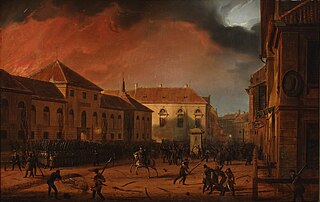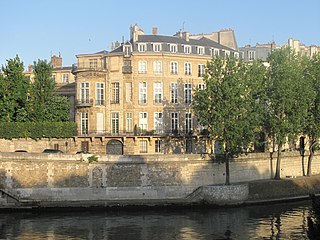 W
WThe November Uprising (1830–31), also known as the Polish–Russian War 1830–31 or the Cadet Revolution, was an armed rebellion in the heartland of partitioned Poland against the Russian Empire. The uprising began on 29 November 1830 in Warsaw when the young Polish officers from the local Army of Congress Poland's military academy revolted, led by lieutenant Piotr Wysocki. Large segments of the peoples of Lithuania, Belarus, and the Right-bank Ukraine soon joined the uprising. Although the insurgents achieved local successes, a numerically superior Imperial Russian Army under Ivan Paskevich eventually crushed the uprising. The Russian Emperor Nicholas I decreed that henceforth Russian-occupied Poland would lose its autonomy and become an integral part of the Russian Empire. Warsaw became little more than a military garrison, and its university was closed.
 W
WThe 4th Line Infantry Regiment was a regiment of the Kingdom of Poland. Formed in 1815, the regiment distinguished itself in the battles of the November Uprising and remains one of the best-known units of the Polish Army of the era. The soldiers of the regiment are known in Polish historical works as the Czwartacy.
 W
WÉtude Op. 10, No. 12 in C minor, known as the "Revolutionary Étude" or the "Étude on the Bombardment of Warsaw", is a solo piano work by Frédéric Chopin written circa 1831, and the last in his first set, Etudes, Op. 10, dedicated "à son ami Franz Liszt".
 W
WFor our freedom and yours (Polish: Za naszą i waszą wolność) is one of the unofficial mottos of Poland. It is commonly associated with the times when Polish soldiers, exiled from the partitioned Poland, fought in various independence movements all over the world. First seen during a patriotic demonstration to commemorate the Decembrists, held in Warsaw on January 25, 18311, it was most probably authored by Joachim Lelewel. The initial banner has the inscription in both Polish and Russian, and was meant to underline that the victory of Decembrists would also have meant liberty for Poland. The slogan got shorter with time; the original had the form 'In the name of God, for our freedom and yours' ('W imię Boga za Naszą i Waszą Wolność'). The original banner has been preserved in the collection of Muzeum Wojska Polskiego in Warsaw.
 W
WThe Great Emigration was the emigration of thousands of Poles and Lithuanians, particularly from the political and cultural élites, from 1831 to 1870, after the failure of the November Uprising of 1830-1831 and of other uprisings such as the Kraków uprising of 1846 and the January Uprising of 1863-1864. The number of political exiles did not exceed more than 6,000 during that time. The emigration affected almost the entirety of political elite in Congress Poland. The exiles included artists, soldiers and officers of the uprising, members of the Sejm of Congress Poland of 1830–31 and several prisoners-of-war who escaped from captivity.
 W
WThe Hôtel Lambert is a hôtel particulier, a grand mansion townhouse, on the Quai Anjou on the eastern tip of the Île Saint-Louis, in the 4th arrondissement of Paris. In the 19th century, the name Hôtel Lambert also came to designate a political faction of Polish exiles associated with Prince Adam Jerzy Czartoryski, who had purchased the Hôtel Lambert.
 W
WJewish City Guard was a paramilitary militia force in Poland during the November Uprising. On 20 December 1830 the representatives of the Polish Jews demanded that their community be allowed to join the Polish Army along with followers of other denominations. The government agreed and Jews were allowed to join all sorts of military formations, including the Polish Army, Security Guard paramilitary organisation and the National Guard.
 W
WPolish National Government of 1831 was a Polish supreme authority during the November Uprising against the Russian occupation of the Polish–Lithuanian Commonwealth. It was formed by the decree of the Sejm (parliament) of the Congress Poland on 29 January 1831 to assume the competences of the Polish head of state in the follow-up of an earlier decree of 25 January: deposing the usurping Tsar Nicholas I of Russia from the throne of Poland.
 W
WScythemen, also known as scythe-bearers is the term for soldiers armed with straightened war scythes. First appearing in the Kościuszko Uprising of 1794, scythemen quickly became one of the symbols of the struggle for Polish independence.
 W
WHorace François Bastien Sébastiani de La Porta was a French general, diplomat, and politician, who served as Naval Minister, Minister of Foreign Affairs, and Minister of State under the July Monarchy.
 W
W"Warszawianka 1831 roku", "La Varsovienne" is a Polish patriotic song written by Casimir François Delavigne with music by Karol Kurpiński.